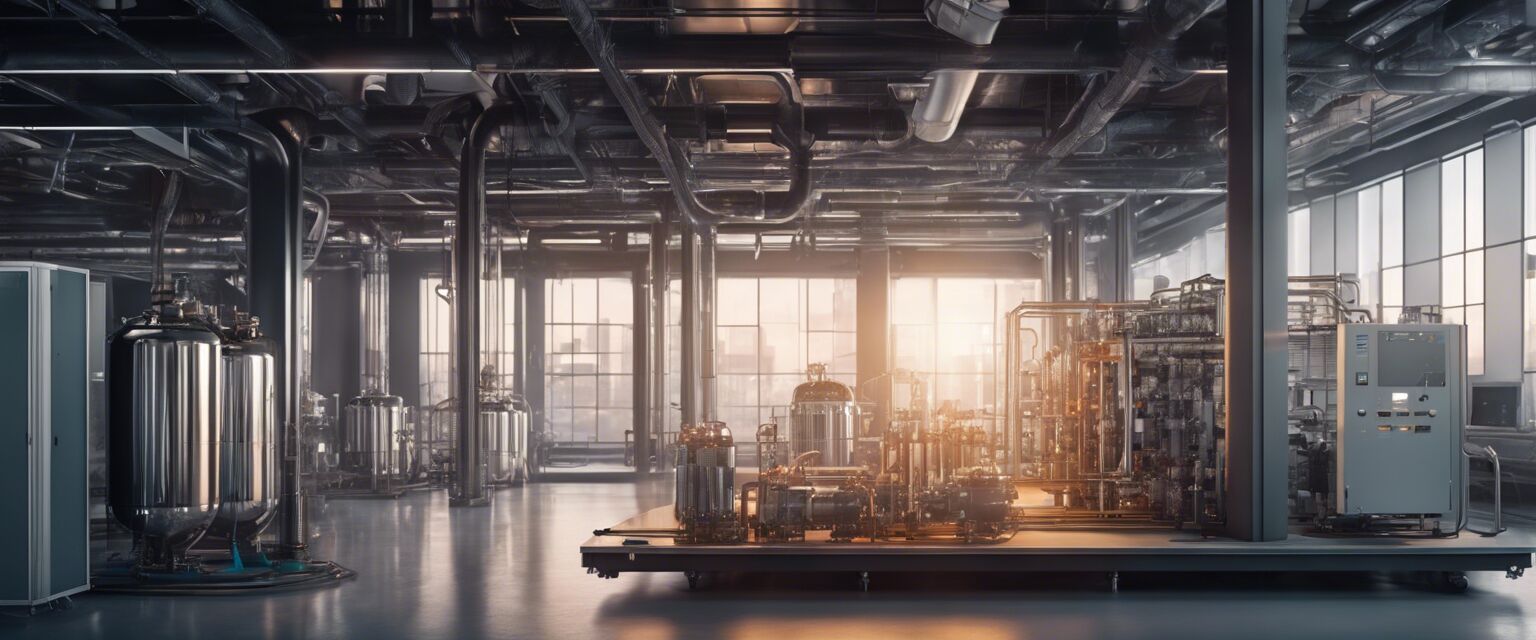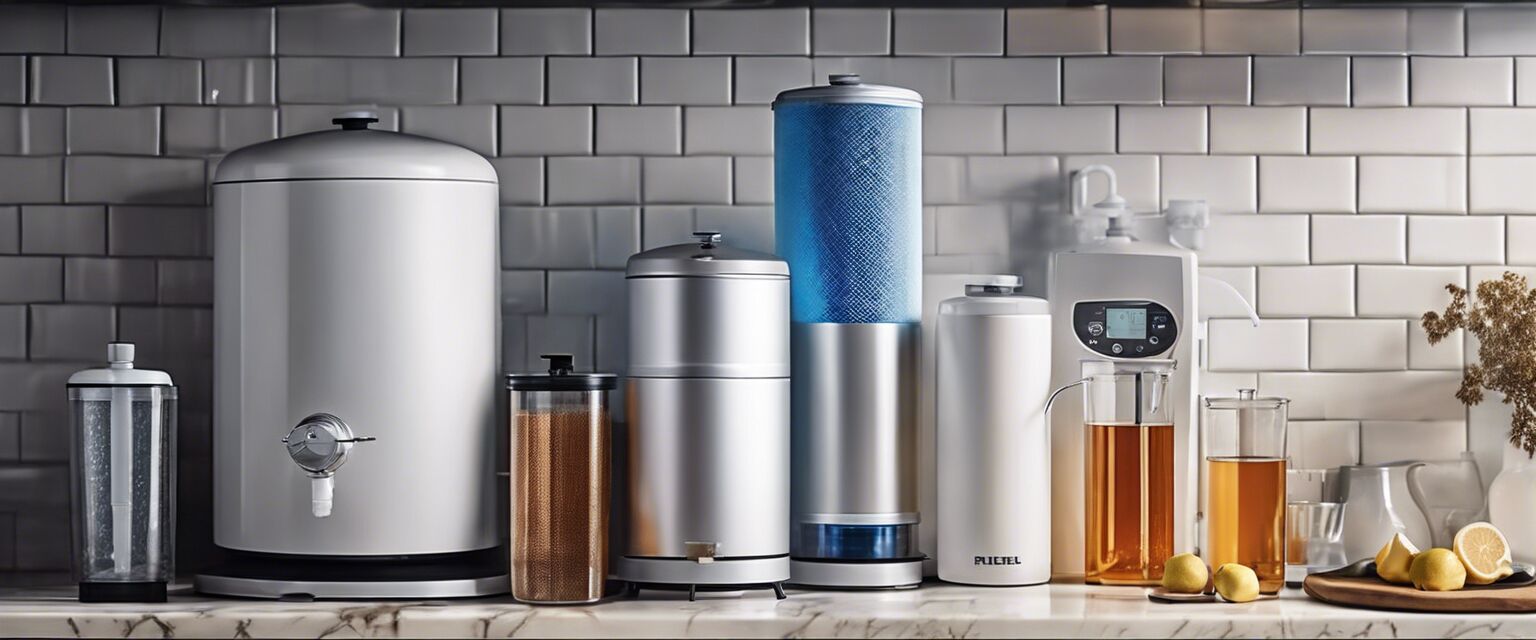
Advanced Filter Technologies
Key Takeaways
- Advanced filter technologies improve efficiency and performance in water and automobile filtration.
- Understanding the latest technologies helps consumers make informed choices.
- Both water and automobile filters serve crucial roles in health and vehicle maintenance.
- Utilizing high-quality filter products can lead to significant long-term savings.
As technology progresses, various sectors are experiencing breakthroughs that elevate the standards for efficiency and quality. These advancements apply significantly to filter technologies, crucial for both clean water supply and automobile performance. This article explores the innovative approaches in filter technologies for water and vehicles, helping you make informed purchasing decisions.
Understanding Filter Technologies
Filtered water and clean air are essential for maintaining health and safety in various environments. Advanced filter technologies are designed with innovative materials and techniques that yield superior performance.
Types of Advanced Filter Technologies
| Type of Filter | Applications | Key Features |
|---|---|---|
| HEPA Filters | Indoor air quality | Removes 99.97% of particles >0.3 microns |
| Activated Carbon Filters | Water purification and air filtration | Absorbs organic compounds, bad odors, and gases |
| Reverse Osmosis Filters | Water treatment | Removes dissolved solids and impurities from water |
| Cabin Air Filters | Automobile air systems | Traps allergens and pollutants from entering the vehicle |
| Engine Air Filters | Automobile engines | Ensures clean air intake for better combustion |
Latest Innovations in Filter Technologies
Filter technology continues to evolve, with innovations that enhance both water and air filtration. Below are some of the cutting-edge technologies reshaping the industry:
1. Nanotechnology in Filtration
Nanotechnology involves manipulating materials at a molecular level to create filters that can trap even the smallest contaminants. This technology is particularly beneficial in both water purification and air filtration systems.

2. Biodegradable Filters
As environmental concerns grow, the development of biodegradable filters is becoming popular. These filters not only provide superior filtration but also reduce plastic waste.
3. Smart Filtration Systems
Smart filtration systems utilize IoT (Internet of Things) technology to provide real-time monitoring of filter performance. These systems alert users when filters need to be replaced, enhancing efficiency.

Benefits of Advanced Filter Technologies
- Improved Efficiency: Advanced filters provide better removal of contaminants.
- Longer Lifespan: High-quality filters often last longer than traditional options, reducing replacement costs.
- Health Benefits: Cleaner air and water promote better health, particularly for sensitive populations.
Considerations for Choosing Filters
When selecting an advanced filter system, consider the following:
- Type of contaminants present in your water or air.
- Filter lifespan and cost of replacement.
- Compatibility with existing appliances or vehicles.
Comparing Water Filter Technologies
| Technology | Advantages | Disadvantages |
|---|---|---|
| Reverse Osmosis | Highly effective against impurities | Can waste water and remove beneficial minerals |
| Activated Carbon | Improves taste and removes odors | May not remove certain bacteria and viruses |
| Doulton Ceramic Filters | Durable and long-lasting | Slower filtration process |
Automobile Filter Technologies
Automobile filters play a vital role in ensuring the optimal running of vehicles. Here are key innovations in this sector:
Engine Filters
High-performance engine air filters can drastically improve engine efficiency by enhancing airflow and reducing contaminants. These filters are designed to be more efficient than standard options, contributing to better fuel economy.
Cabin Filters
Cabin air filters ensure clean air inside vehicles, removing dust, pollen, and other particulates. Advanced cabin filters include activated carbon for better odor control.
Choosing the Right Filter for Your Needs
For both automotive and water filtration requirements, consider the following:
- Assess your specific needs based on your driving habits or water quality.
- Look for filters with certifications that validate effectiveness.
- Consult professionals if unsure about the best fit for your situation.
Conclusion
Advanced filter technologies play a critical role in enhancing both water quality and vehicle performance. By staying abreast of the latest innovations and understanding your specific needs, you can make informed decisions that benefit your health and finances.
Tips for Maintaining Your Filters
- Regularly check filter performance and replace as needed.
- Clean reusable filters according to the manufacturerâs instructions.
- Invest in products from reputable brands to ensure quality and reliability.
Pros
- Improved filtration efficiency
- Longer lifespan of products
- Better health safety
Cons
- Higher initial investment necessary
- Required maintenance can be time-consuming
For more information on automobile filters, visit our Automobile Cabin Air Filters page or if you are interested in water filtration, see our collection of Portable Water Filters.
